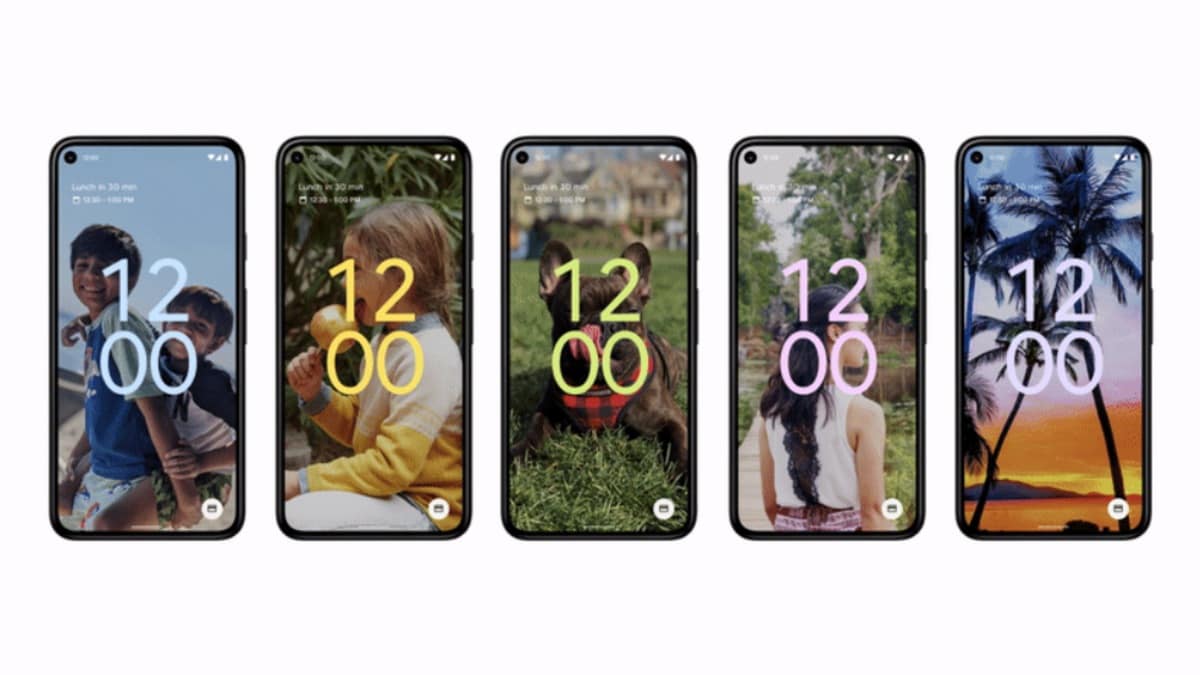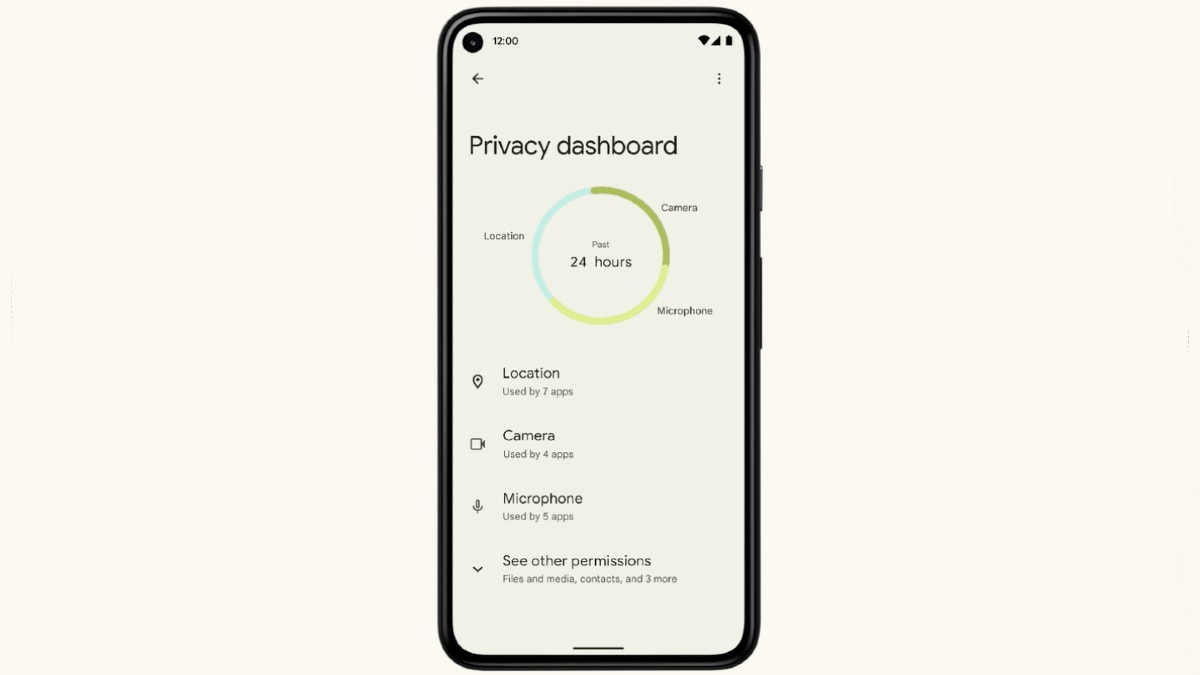BOOK THIS SPACE FOR AD
ARTICLE ADAndroid 12 public beta is now live. Google unveiled Android 12 at its I/O 2021 keynote on Tuesday, May 18 with a redesigned user interface and enhanced privacy settings. While a stable release of the new operating system will be available later this year, you can experience some of its key features by downloading the first public beta of Android 12 (aka Android 12 Beta 1) on your smartphone. It has a new interface based on a design language called Material You. The first public beta release also gives you a glimpse of the privacy settings that Google is bringing to your smartphone.
How to install Android 12 Beta 1 on your smartphone
Android 12 Beta 1 is available for download on Google Pixel 3, Pixel 3 XL, Pixel 3A, Pixel 3A XL, Pixel 4, Pixel 4 XL, Pixel 4A, Pixel 4A 5G, and the Pixel 5. To install the beta release on your Pixel phone, you initially need to enrol your device from the Android 12 beta site. You will be required to enrol for the Android 12 beta release even if you previously enrolled in the Android 11 Beta Program.
Once enrolled, Android 12 Beta 1 will be available for download on your phone. You can also manually check for its availability by going to Settings > System > System Update > Check for update. It may take some time for the beta release to reach your device.
If you don't own a Pixel phone, Google has announced Android 12 Beta 1 for a list of third-party smartphones that are a part of the Android 12 Developer Preview programme. These phones include Asus ZenFone 8, OnePlus 9, OnePlus 9 Pro, Oppo Find X3 Pro, TCL 20 Pro 5G, Tecno Camon 17, iQoo 7 Legend, Mi 11, Mi 11 Ultra, Mi 11i, Mi 11X Pro, Realme GT, and the ZTE Axon 30 Ultra 5G. You can check for the process of installing the first public beta release of Android 12 on any of these phones by going to the manufacturing links available on the Android Developers site.
Google brought the first developer preview of Android 12 in February. It was at that time limited to Google Pixel phones.
What's new in Android 12
Android 12 has an all-new interface that can be personalised with a custom colour palette and new widgets that can be resized with a much greater flexibility. Google has offered a feature called colour extraction that allows the system to automatically determine “which colors are dominant, which ones are complementary and which ones just look great” from your wallpaper (could be a picture you clicked) and apply those colours across the entire interface. This means that elements such as the notification shade, the lock screen, volume controls, and widgets — everything will be adjusted to compliment your wallpaper.

Android 12 comes with a colour extraction feature that brings personalisation to the interface
Photo Credit: Google
The interface of Android 12 now includes fluid motion and animations. You'll be welcomed with the new treatment when you unlock the screen — by tapping the display or by pressing the lock screen. There are also redesigned widgets — allowing developers to offer interactive controls such as checkboxes, switches, and even radio buttons to their widgets. The key interface-level changes are based on Material You, which is an upgrade to the existing Material Design language, and is aimed at bringing a unified experience across all Google apps and services over time.
Users on Android 12 will also notice a system-wide “stretch” overscroll effect that will appear once they have scrolled past the end of the available content. It replaces the existing glow overscroll available in previous Android versions. Further, there are smoother audio transitions that will be available between apps to prevent them from playing over each other.
Android 12 also includes redesigned system spaces, such as the notification shade, quick settings, and the power button. The notification shade has become more intuitive, while the quick settings panel has added additional controls to let you adjust system settings to a large extent. It also includes controls for Google Pay and Home Controls. The power button, on the other hand, has received the ability to invoke Google Assistant when long pressed. Most of these changes may sound familiar if you've recently used an iPhone running on iOS 14 or later versions.
Google says that it has optimised the overall user experience on Android 12 with better power efficiency. The underlying improvements are claimed to reduce the CPU time needed for core system services by up to 22 percent and cut the use of big cores by the system server by up to 15 percent. This helps bring a faster and a more responsive experience.
Google has also brought new privacy settings on Android 12 that are touted to help provide “more transparency around which apps are accessing your data, and more controls so you can make informed choices about how much private information your apps can access”. There is a new Privacy Dashboard that gives you the details about permission settings and what data is being accessed, how often, and by which apps. You can also revoke permissions given to apps directly from the dashboard.

Android 12 comes with a new Privacy Dashboard
Photo Credit: Google
Similar to iOS 14, Google has added a new indicator that appears on the top-right corner of the screen when any of the installed apps is accessing the microphone or camera of your smartphone. There are also two new toggles in the quick settings panel to remove app access to the microphone and camera for the entire system.
Android 12 also comes with a new approximate location permission to let you decide whether you want to share your precise location or an approximate one with apps available on your phone. This is useful as apps such as the ones giving weather updates don't require precision location. It is also similar to approximate location settings available on iOS 14.
Aside from the new location settings, Android 12 brings an app hibernation feature that essentially hibernate apps that are not being used for an extended period. This will help enhance user safety and also optimise device storage and performance. The feature is built on permissions auto-reset that Google introduced last year and has helped over the last two weeks to reset permissions for over 8.5 million apps that weren't being used.
Google has also brought Android Private Compute Core as a built-in sandbox in Android 12 to keep user information private and store locally. The new offering will work with features like Live Caption, Now Playing, and Smart Reply.
.png)
 3 years ago
116
3 years ago
116 














 Bengali (Bangladesh) ·
Bengali (Bangladesh) ·  English (United States) ·
English (United States) ·